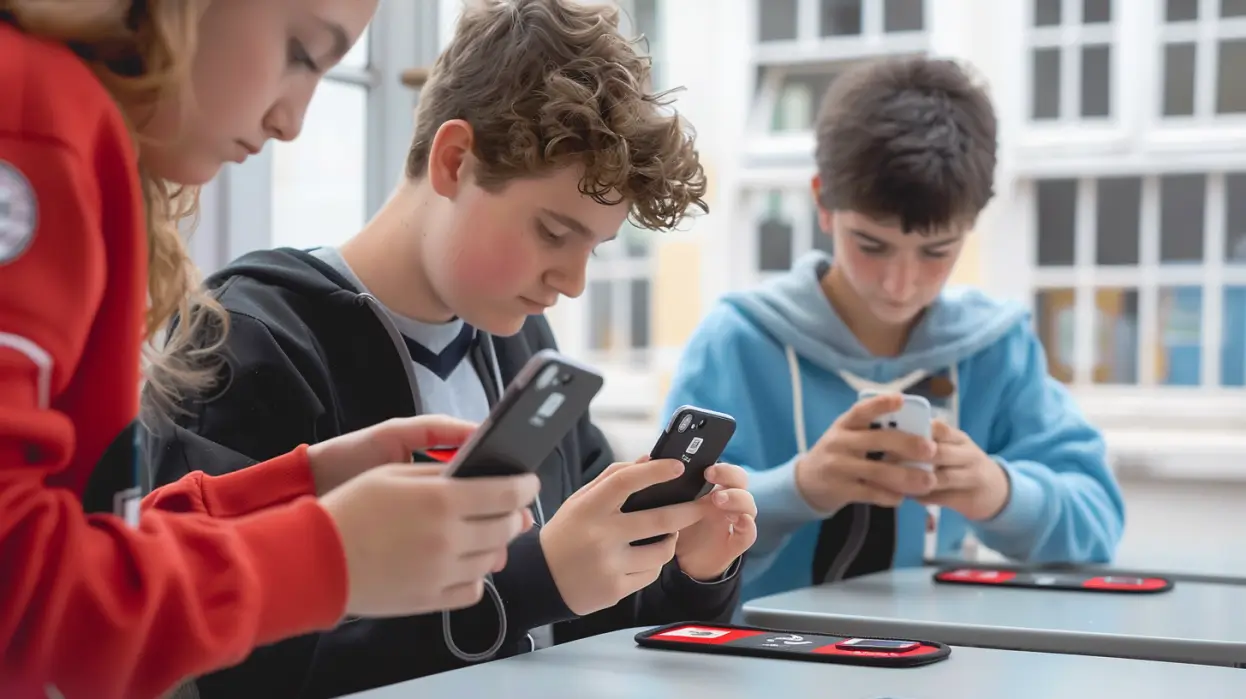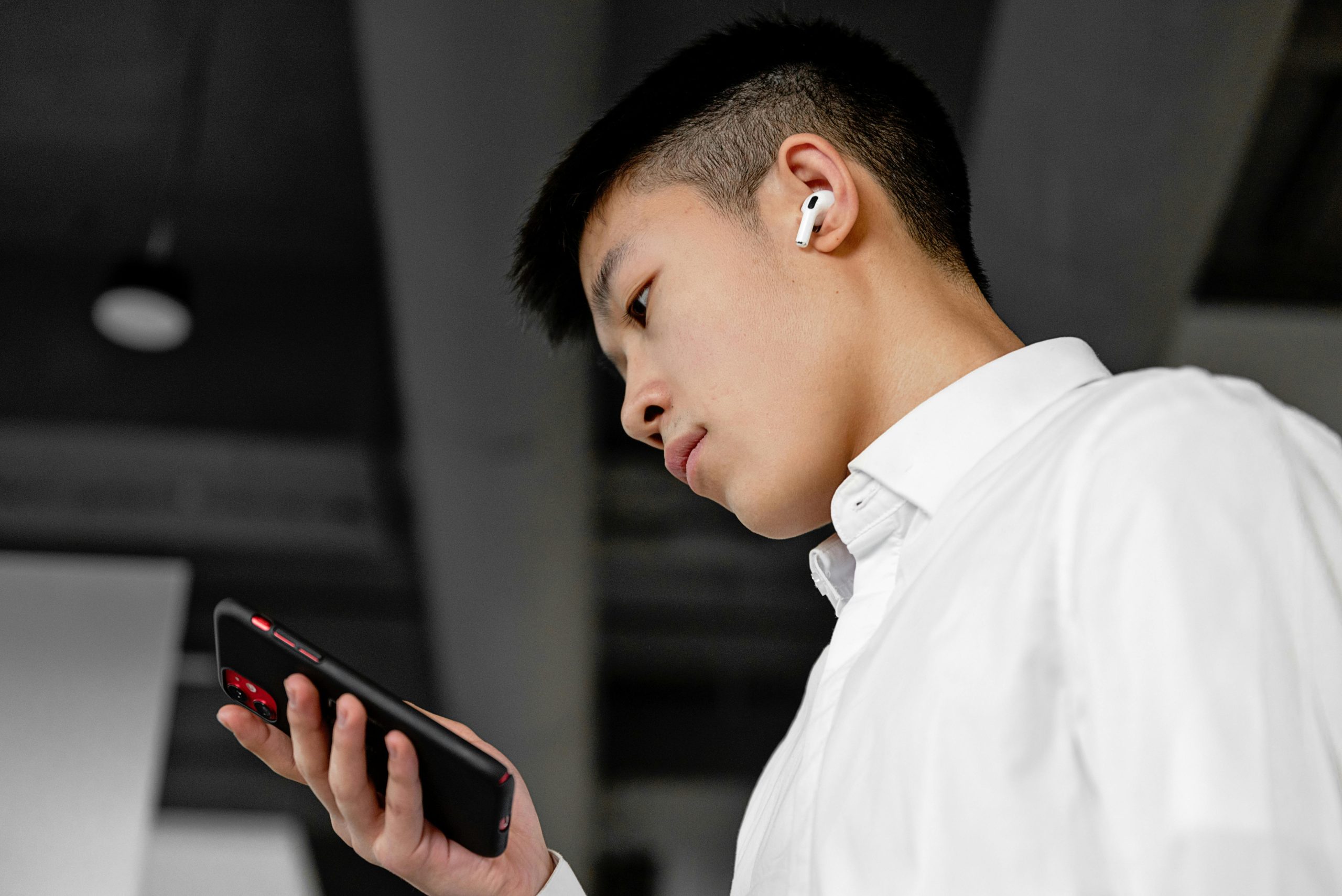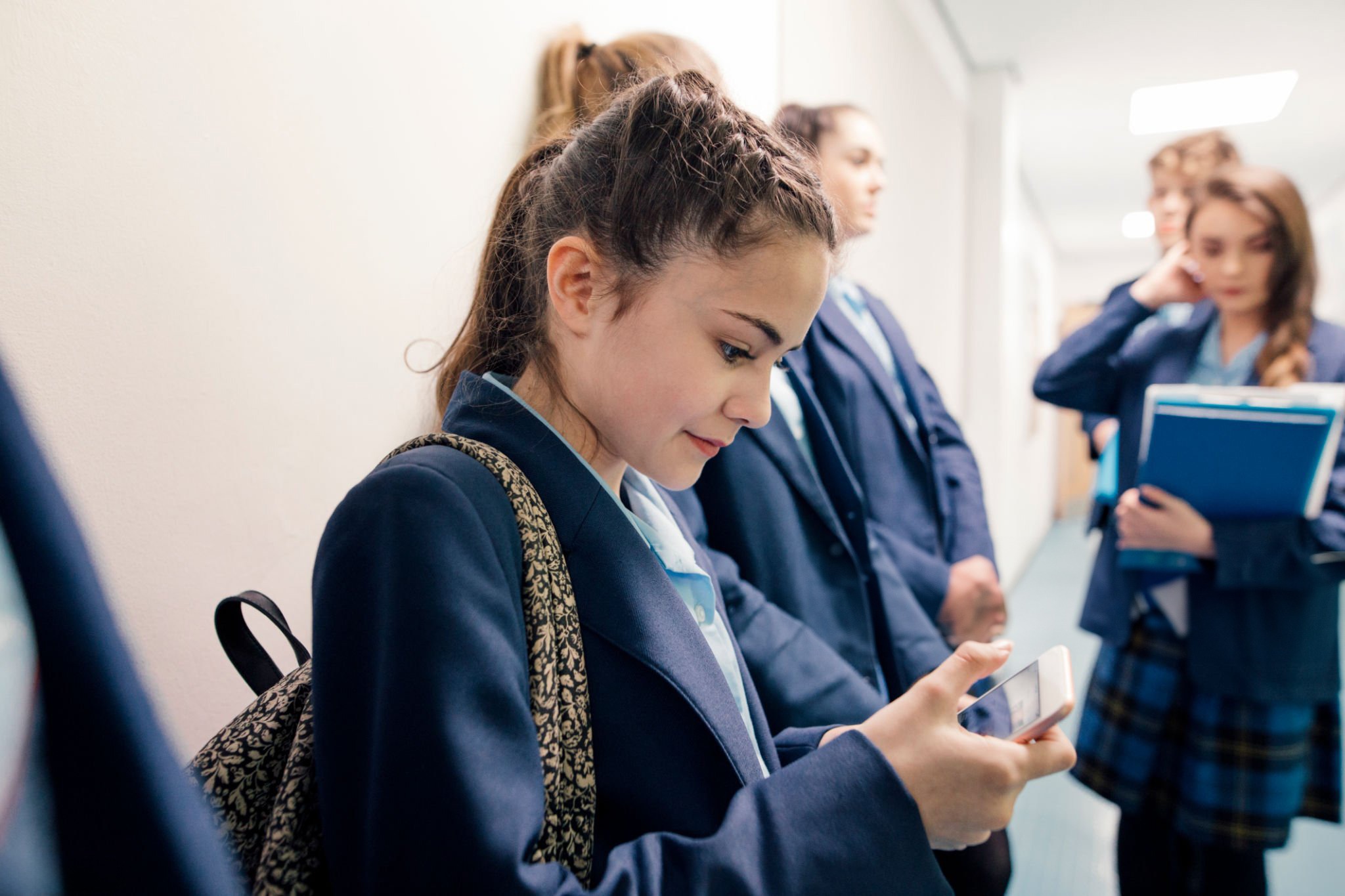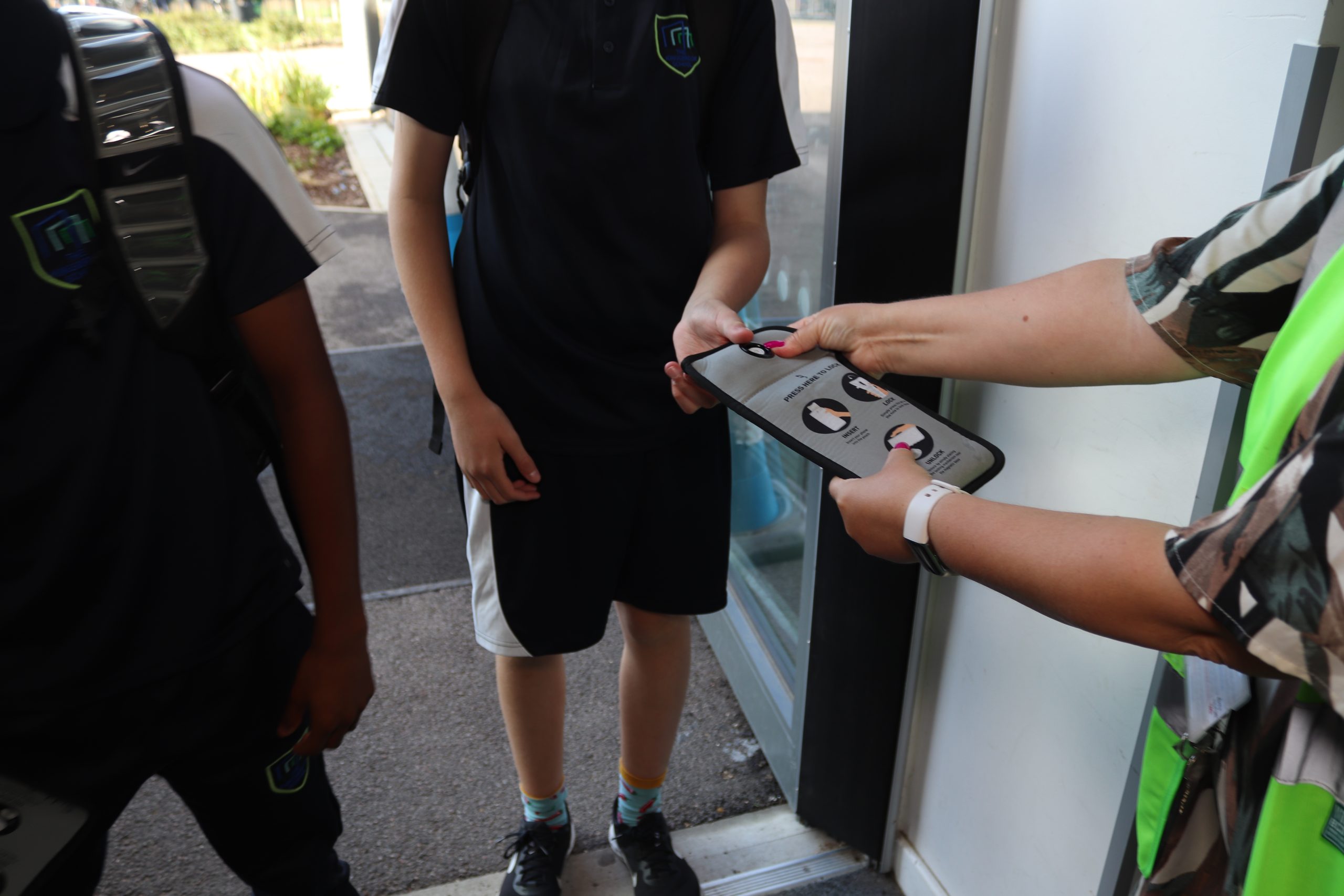France Bans Phones in Schools
France Bans Phones in Schools
Pioneers in Policy
Since July 2018 France have been first movers in banning mobile phones in school, alongside tablets and smartwatches. The guidelines were implemented across primary and middle schools with the aim to reduce distractions, enhance student performance and encourage greater social interaction among pupils.
Although the policy initially faced criticism and logistical challenges, several years later in a post COVID world, it is more apparent than ever that this was the right move for the country. This success was observed globally and has now resulted in over 70 countries operating with a school phone ban to some extent and countries like Australia going a step further even banning social media for under-16s.
Despite strong guidelines restricting phone usage in schools there is not a mandatory ban, only provisional guidelines. France is however trialling a ‘Digital Pause’ with 50,000 students across 180 middle schools, which requires them to hand in their phone or use phone pouches.
An argument at the forefront of support for the bans is regarding students’ mental wellbeing. Not only do the bans have the potential to create a better educational environment but they can also help address the rising concerns around children’s mental health as studies show that reducing screen time can also reduce feelings of anxiety and depression.
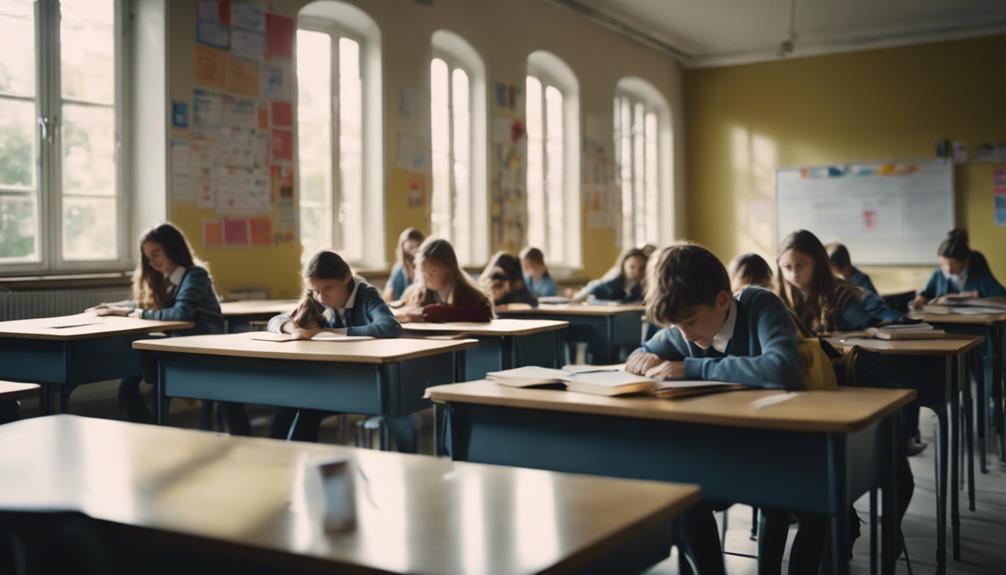
Early Adopters in Education
At the time France’s decision to go ahead with this move was bold even with a growing understanding of technology’s impact. However, mounting evidence including Research from the University of Chicago indicated that the mere presence of a mobile phones can diminish cognitive capacity and hinder student’s academic performance even when not in use. This was enough for the French Government and President Emmanuel Macron to put policy in place and address the issue.
Although policies are now present, they differ from school to school with the institutions given the autonomy to implement their own guidelines, resulting in a medley of rules across the country. Some schools have completely banned them from the premises, while some allow students to keep them in their bags.
Claude Hermann Middle School in the southern suburbs of Paris took a different approach, allowing students to bring in their devices under the condition they are handed to a teacher in the morning. These phones are then put in heavy-duty briefcases throughout the day.
Although this effectively removed phones from the classroom it meant the school was now liable for their possession and safety. Alongside this the costs of five of these briefcases was more than £300, which came out of the school’s pocket as the purchase was not state funded.
Fabian Leroux, the school supervisor for Claude Hermann said the purpose of this approach was to
“Get students used to being without their phone all day and teaching them to live differently during recess instead of always being on their phones”.
Approaching the policy in this way can be effective but may bring about its own issues such as stand offs with student’s who don’t want to give up their phones and of course the liability of having hundreds, if not thousands of phones in their possession. If the mobiles were to get damaged, lost or stolen the school is responsible for replacing them.
For this reason, many schools instead opt for sealable mobile phone pouches, which allow students to retain possession of their device but are unable to access it unless it is unlocked via a designated unlocking point.
International French School Jeannine Manuel have already adopted Phone Locker pouches and found that it had created a sense of calm within the school, with students now more engaged and the staff agreeing it was an important move for the school.
Most notably Jeannine Manuel found that they faced little challenge in implementing the pouches with students and parents alike on board with the idea.
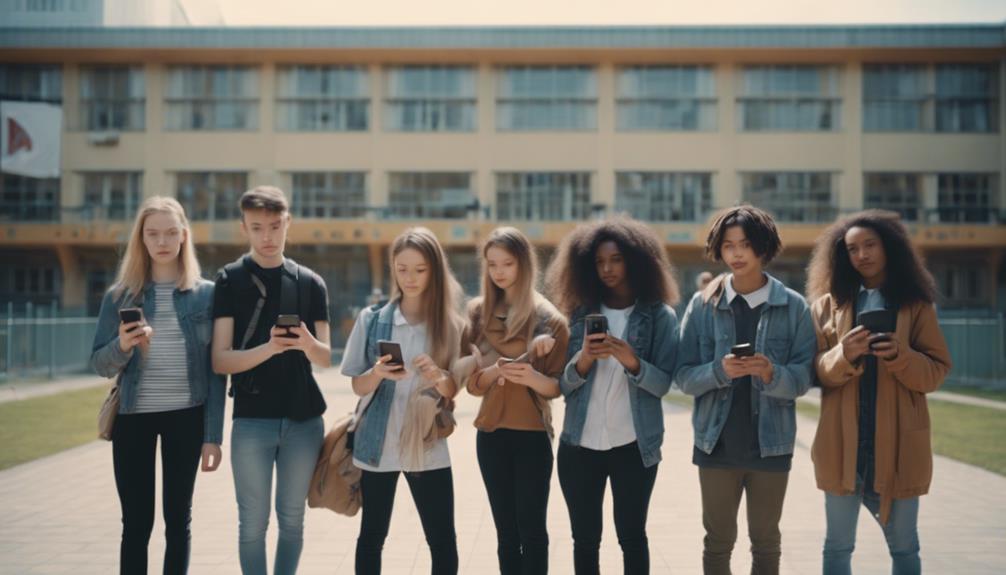
Why Phone Pouches?
Teachers
There are many reasons why schools have chosen to begin using phone pouches, one of the main reasons being that it allows students to maintain control of their phone throughout the day but not use it, so if it is lost or damaged the responsibility is that of the students.
An additional reason is that this combats teachers having to police the policy, there are less disruptions in class and it helps avoid any uncomfortable stand offs where students refuse to give up their phone, sidestepping the resentment and retaliation that can come from confiscation.
As we expect, young people can be pretty ingenuitive when it comes to finding way around rules and phone bans are no exception to this. By implementing phone pouches, it helps eliminate any covert smartphone use as teachers can check at all times that the device remains locked in the pouch.
A common objection from teachers is that Phone bans revert advances in technological classroom integration, however, at the teacher’s own discretion they can use handheld unlocking bases to allow students to access their mobiles for whatever interactive or research task they may have and then ensure the pouches are resealed at the end of the lesson.
Parents
Some parents already struggle with managing their children’s smartphone use at home and are in support of School Phone Bans but have concerns with their child’s journey to and from school as well as needing to contact them in an emergency. Although parents should refrain from contacting their children during school hours in the case of an emergency staff at the school will be able to pass on messages or action any further requirements.
On their way to and from school students have full access to their mobiles for whatever purposes they need, it is only when they get into school that they must use the pouches. This helps overcome the issues that come with a blanket ban of Phones of the premises.
Students
When given free range and unlimited access to the internet and devices for most of their lives, very few students are going to be 100% on board with a full phone ban. However, despite the begrudging acceptance of the policy many children have said they actually enjoy the freedom of not using their devices and even more begin to feel the benefits after the policy has been implemented.
Students and teachers alike found that after actioning a phone ban in their schools there was:
- Improved social interaction amongst students.
- Enhanced concentration time and intensity.
- Improved academic performance.
- Fewer classroom disruptions.
Students also say felt less feelings of stress, anxiety and depression after giving up their phones for the school day.
How to Implement an Effective Phone Ban
Another study from the Journal of Communication Education revealed that students without phones wrote down 62% more information, were able to recall more detailed content and scored significantly higher on multiple choice tests.
Despite the evident improvements that are possible from mobile-free environments the country continues to use other initiatives alongside the ban by conducting workshops to help individuals overcome screen addiction, which can be seen through terms such as digital detoxing, unplugging and screen fasting.

Guidelines into Governance
As first movers in implementing school phone bans, France had the eyes of the world watching and assessing the impact of this policy. After being deemed a success globally many countries such as the UK, Germany and across Europe have seen an uptake in policy and legislation with Phone Bans in Schools.
Despite the strong guidelines there is not a mandatory ban in France. However, if the country’s ‘Digital Pause’ program is seen as a success there may be further legislation mandating that students must give up access to their phones during the school day.
As a new government has yet to be formed following President Macron’s call for early parliamentary elections, the caretaker administration is managing day to day affairs, leaving the future education minister to decide whether this ban should be expanded nationwide in 2025.
Once again, the insights from France’s proactive School Phone Policies may inform global educational strategies seeking to balance technology and educational efficacy.
If you’re interested in creating a Phone-Free environment in your school or place of work Contact Us or find out more by Visiting our Website.








